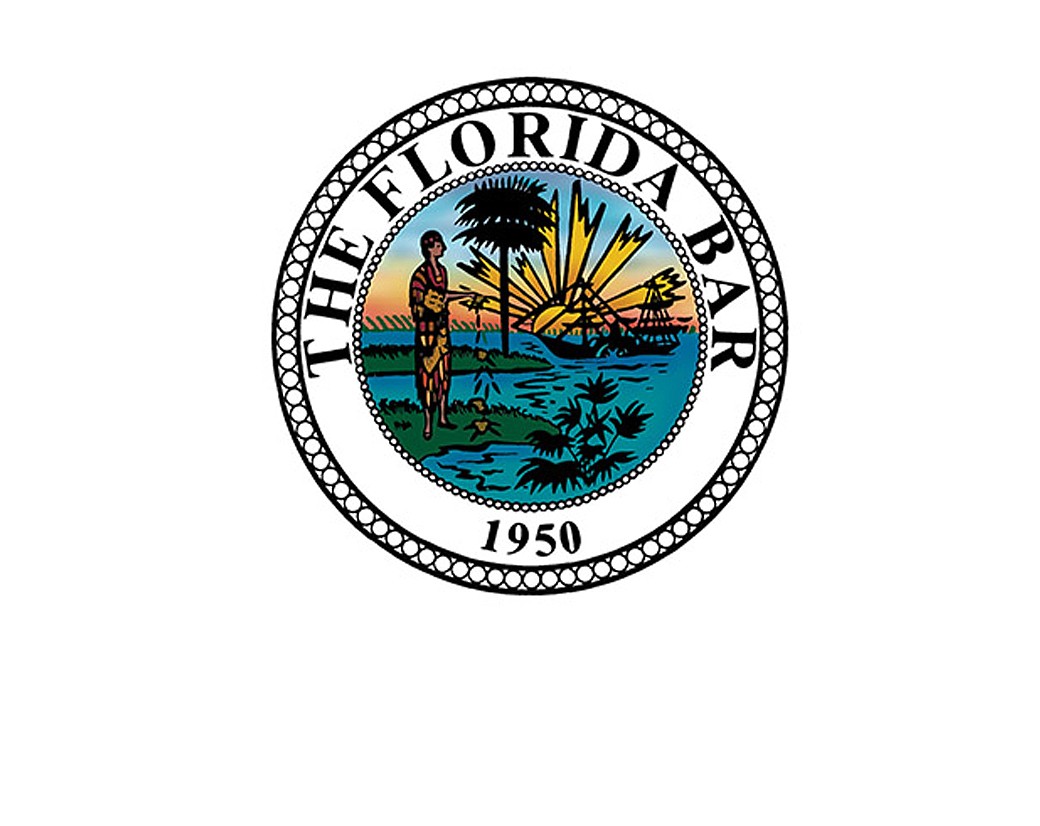
A Jacksonville Bar Association panel discussed what happens when a complaint related to ethics or professional conduct is made against an attorney.
Fourth Judicial Circuit Judge Waddell Wallace, chair of the JBA Professionalism Committee, moderated the March 29 panel discussion that included Jacksonville attorneys and Florida Bar board of governors members Braxton Gillam and Michael Fox Orr and Jim Fisher, Bar counsel for The Florida Bar.
Gillam said when there’s a complaint against an attorney by a client, another lawyer or a judge, it is reviewed initially by the Attorney Consumer Assistance Program.
If the complaint warrants further action, it is sent to a Circuit Grievance Committee in the circuit where the attorney practices.
Gillam and Orr chair two of the four grievance committees in the 4th Judicial Circuit, which comprises Clay, Duval and Nassau counties.
Orr said the grievance committees meet monthly and operate similar to a grand jury by reviewing documents and records and by hearing testimony from the person making the complaint and the attorney accused of misconduct.
He said it is a thorough process because “lawyers’ careers are in the balance.”
If the committee determines it is probable that professional standards adopted by The Florida Bar may have been violated and attorney discipline might be appropriate, the state Supreme Court may appoint a referee.
The referee, a judge in the circuit where the complaint was filed, essentially tries the case, Gillam said. That includes hearing testimony from both sides and reviewing results of an investigation of the complaint conducted by the grievance committee and representatives of The Florida Bar.
The referee’s findings are reviewed by the Bar’s board of governors, which may send the case to the state Supreme Court if probable cause for a violation is the board’s conclusion.
“There are a lot of layers to the process,” said Fisher, who represents The Florida Bar when a formal complaint is filed against one of its members.
Gillam said about 25% percent of complaints proceed past the investigation stage.
Discipline also has layers, from mild through revoking an attorney’s license to practice law.
The attorney might receive a “Letter of Advice” if standards haven’t been fully upheld, but there was no clear violation of the Bar’s conduct standards.
Other sanctions include admonishment, public reprimand, suspension up to three years or, in extreme cases of proven misconduct, disbarment.
Restitution, forfeiture of fees and participating in professional development programs are other sanctions that may be ordered by the state Supreme Court, the ultimate authority for attorney discipline.
Fisher said that half of The Florida Bar’s members don’t know what the Bar counsel does in the discipline process “and the other half are afraid of us.”
He said he is available to answer questions about professional conduct to head off issues before they become problems.
“I’m not looking to sanction anybody. If I can help our members stay in the rules, I’m happy to do it,” Fisher said.
If a complaint proceeds to The Florida Bar, candor is the key.
“Just tell me the truth and we can fix it from there – unless it’s fraud or a trust account violation. That isn’t fixable,” Fisher said.
Gillam and Orr agree that attorneys can often avoid the discipline process just by communicating.
“Respond to your clients. A lot of issues arise when attorneys don’t respond to their clients,” Orr said.
Gillam said it is important to make sure clients understand what their attorney was hired to do for them. It can be more important for the client to understand what their attorney wasn’t hired to do for them.
“Make sure the client is clear about the scope of representation,” he said.
The JBA provides information on its website about the complaint process for attorneys and for the public. Visit https://www.jaxbar.org/page/AttyConductSp for details.